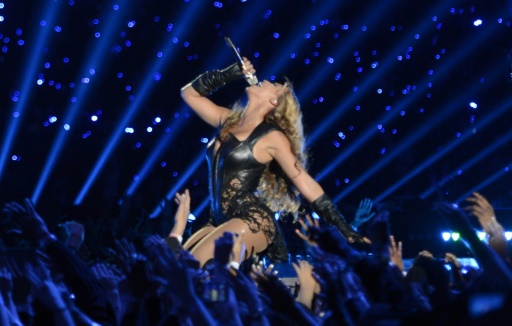Beyonce to remove offensive lyric after disabled community outcry
02 August, 2022

Beyonce will remove a derogatory term for disabled people from her new song "Heated," a spokesperson said Monday, after its use was condemned as offensive by campaigners.
The U.S. pop megastar will re-record the track from her latest album "Renaissance" on which she originally sang the lyrics "Spazzin' on that ass, spazz on that ass."
"The word, not used intentionally in a harmful way, will be replaced," a spokesperson for Beyonce told AFP via email.
Co-written with Canadian rapper Drake, the dance track appears to use the word "spaz" in the colloquial sense of temporarily losing control or acting erratically.
Read More : Beyonce, Megan drop remix for coronavirus relief
But disability campaigners noted that the word is derived from "spastic." According to the Centers for Disease Control and Prevention, spasticity is a movement disorder involving stiff muscles and awkward movement, suffered by 80 percent of people with cerebral palsy.In June, US singer Lizzo re-recorded her song "Grrrls" to remove the same term following complaints that it was derogatory.
Australian disability campaigner Hannah Diviney said the inclusion of the word by Beyonce "feels like a slap in the face to me, the disabled community & the progress we tried to make with Lizzo."
"Guess I'll just keep telling the whole industry to 'do better' until ableist slurs disappear from music," she tweeted.
Beyonce's eagerly anticipated seventh solo studio album "Renaissance" was released Friday, drawing mainly positive reviews with its nods to disco and electronic dance.
Other collaborators on the album -- which leaked online in the days prior to its official release -- include Nile Rodgers, Skrillex, Nigerian singer Tems, Grace Jones, Pharrell and Beyonce's rap mogul husband Jay-Z.
In an Instagram post published soon after the album's release, Beyonce said creating the album "allowed me a place to dream and to find escape during a scary time for the world.
"My intention was to create a safe place, a place without judgment," she wrote. "A place to be free of perfectionism and overthinking. A place to scream, release, feel freedom."
Source: japantoday.com
TAG(s):
